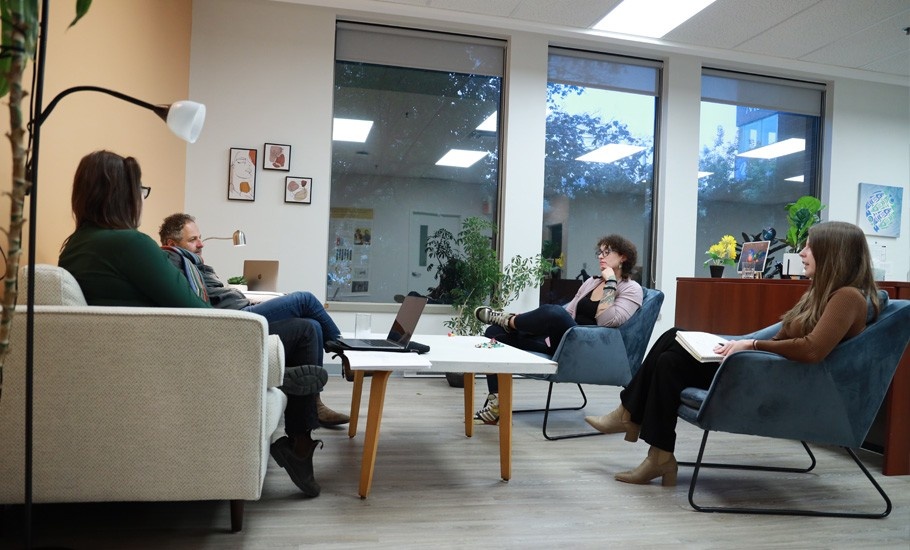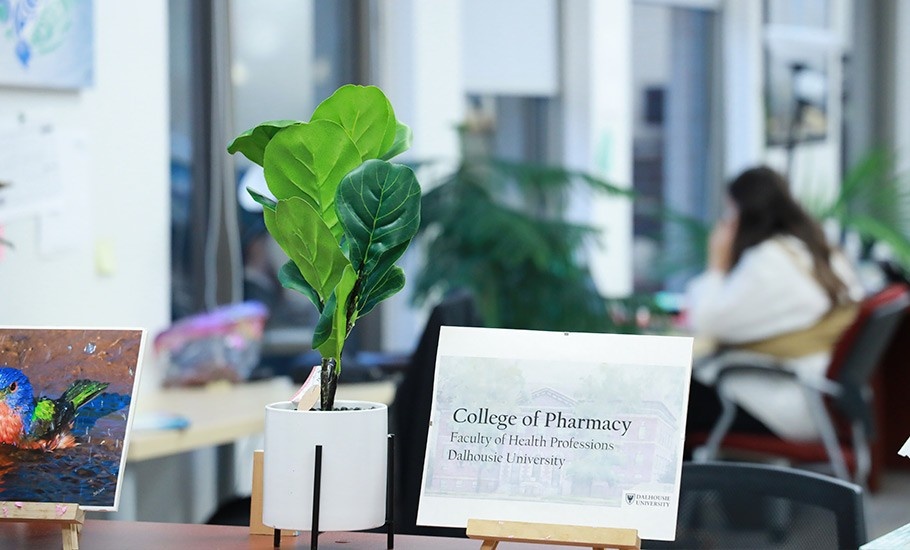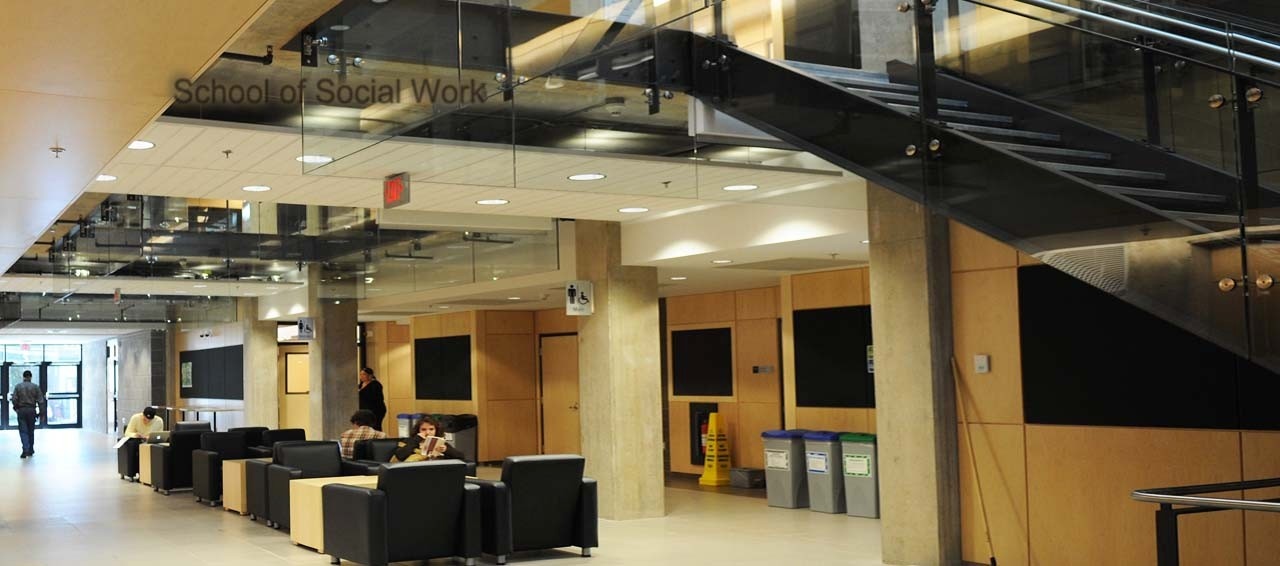Our Team
The Social Work Community Clinic was originally developed as an experiential learning environment for social work students. Staff and students at the Clinic participate in front-line social work service provision working with individuals in the community across case management, system navigation, advocacy and supportive counselling.
Examples of these services are but not limited to:
- form filling
- accompaniment to appointments
- referrals
- resource navigation/support
- groups around mental health
- individual counselling

Our Pharmacy Team
Clinic Pharmacists are available as part of the health care team to support clients with medication and health related questions or concerns. The Clinic Pharmacists will work collaboratively with the Clinic Social Workers and other health care providers to support client needs. Read more about the Clinic Pharmacy Program [283KB].
Download our Pharmacist Referral form [173 KB] (we welcome referrals from clients, and other health care providers).

Pharmacists and Pharmacy Students serving Clinic clients will endeavor to provide pharmacy patient care in collaboration with the other health care professionals within the clinic. The Pharmacist’s Patient Care Process (PPCP) taught at the Dalhousie College of Pharmacy will be followed as appropriate to the client care situation presented. Pharmacy Students must always have an appropriate level of supervision by a Pharmacist. All patient documentation must be co-signed by a Pharmacist and stored in the clinic files. Pharmacists working in the Clinic hold direct patient care licenses with the Nova Scotia College of Pharmacists (NSCP).
Our Occupational Therapy Team
Occupational therapists work with individuals, groups and/or communities to achieve those things that they, the clients, may want, need or are expected to do on a daily basis. It is a client-centered profession that meets people where they are at with regards to their health and wellness status, environment and social context. The clients’ goals in conjunction with the therapists’ resources and skills are what leads the therapeutic plan of action.
The OT services offered to the individuals who attend the Clinic may involve:
Troubleshooting obstacles for accessibility for mobility aids such as wheelchairs and walkers
Assessment and advocacy for securing excess housing allowance through Dept. Community Services
Support for home organization when this creates a significant barrier to meeting personal goals for health and wellness, e.g., locating documents, creating efficiencies, teaching necessary skills etc.
Assessment and prescription for rehabilitation equipment for safe and independent living
Connecting clients to supports, services, programs which support their community access and goal achievement
Building client capacity for meal preparation, chores, food security
Conducting environmental scans, job-site analysis, collaborating in plans to return to productive roles, e.g., return to work, volunteering opportunities
Preparing grants for funding of necessary equipment, e.g., power wheelchairs, elevators, home modifications
Support for building effective strategies to better manage mental health symptoms, e.g., sensory interventions, relaxation and stress management strategies, pacing and organization of activities to prevent crisis
Our Psychology Team
The Clinic's Psychology team consists of Clinical PhD students who work with clients to provide therapeutic intervention on an individual level in-person or through telehealth services. The psychology team can also offer assessments for adults interested in either a neurocognitive or mental health assessment. The psychology team utilizes both an evidence-based model and client-centered approach in their interventions. The psychology team frequently works with individuals on but not limited to issues around anxiety, depression, trauma, etc.
Our Recreational Therapy Team
Recreational therapy services at the Clinic are guided by a strengths-based, person-centered approach. Recreational therapy services involve identification of leisure interests and individual client goals for self-care and recreation participation. Clients will receive ongoing individual leisure counseling in-person, or by phone or videocall to maintain ongoing support and progress towards goals. Clients will also receive assistance with registering or joining community recreation programs, seeking financial aid, and/or identifying free or low-cost resources, as needed. This may be supported by weekly or bi-weekly leisure education and leisure sampling events, or other community outreach such as walking groups. Leisure education addresses the benefits of leisure, supports to overcome barriers to leisure participation, and awareness of community resources to support ongoing participation in recreation and leisure.
Our Nutrition Team
In partnership with Mount Saint Vincent University and Acadia University. The nutrition team completes community-based projects that address malnutrition issues in our communities.
